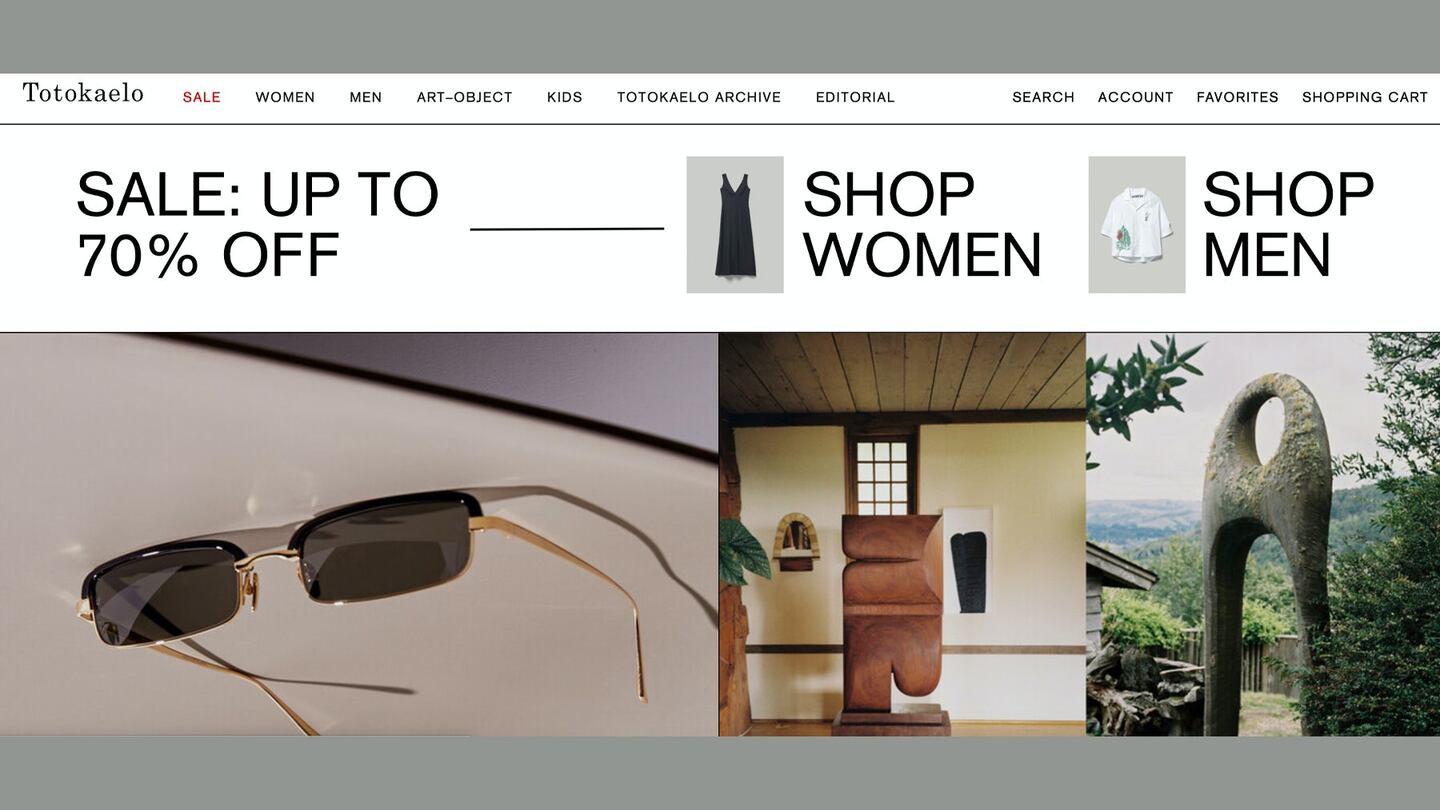
The Business of Fashion
Agenda-setting intelligence, analysis and advice for the global fashion community.

Agenda-setting intelligence, analysis and advice for the global fashion community.

NEW YORK, United States — Need Supply, the Richmond, Va.-based multi-brand retailer that sells fashion brands like Rachel Comey and Ganni, is winding down its operations, according to a statement released by parent company NSTO.
This includes Needsupply.com, as well as fashion-insider favourite Totakeolo, which operates its own website as well as two stores: one in Seattle and one in New York City.
The closure of NSTO marks one of the first casualties in the multi-brand fashion retail space since the start of the pandemic. (The Modist, a venture capital-backed online retailer specialising in modest fashion, closed in April. Forty Five Ten, a luxury retailer with roots in Dallas, shrunk its staff of nearly 100 down to about five in May.) It likely won't be the last.
In 2018, Need Supply and Totokaelo formed a retail group, formalising a partnership put in place by backers Cormack Capital.
ADVERTISEMENT
The investment firm, run by Vancouver-based accessories brand Herschel Supply co-founders Jamie and Lyndon Cormack, had invested in the stores — both of which sold their line of backpacks and luggage — a few years earlier.
The idea was that the combined entities would reach more customers. The stores would be able to maintain their specific personalities — Need Supply had a more youthful air, while Totokaelo attracted a sophisticated shopper interested in new wave luxury — but working together would allow the group to compete more fairly against heavily financed competitors such as Farfetch and Matchesfashion.
"In the US, you've got some large platforms that focus on breadth and so, therefore, don't have as strong as a point of view," Chief Executive Christopher Bossola told BoF in 2018. "In the background, we have this common platform that is scalable… [and] supports very unique brands on the front end."
Both Need Supply and Totokaelo were also important stockists for independent brands, such as Lemaire, Baserange and Eckhaus Latta, which rely on distribution from these types of stores not only to sustain their businesses, but as a marketing vehicle. Prior to the pandemic, there were plans to expand the retail group further, including talk of opening a Need Supply store in Brooklyn, which would be its first physical outpost outside of Virginia in the United States. (Previously, there was a partner-operated Need Supply store in Tokyo.)
But the outbreak rendered operations like Need Supply and Totokaelo — which specialise in niche fashion, not lockdown-friendly active and loungewear — virtually unable to move spring inventory for several months, resulting in deep discounts quite early in the sales cycle.
Both stores have a unique history. Need Supply was part of a cohort of multi-brand fashion retailers that emerged in college towns in the 1990s and 2000s to sell upmarket, contemporary-priced fashion. Many of them, including Shopbop in Madison, Wisconsin, and Active Endeavors in Evanston, Illinois, developed a notable e-commerce presence early on in the online fashion game. Some, like, Active Endeavors, sputtered out in the last recession, while Shopbop was able to segue that success into something greater: It was acquired by Amazon in 2006.
Totokaelo, founded by Jill Wenger in 2009, was also early to fashion e-commerce. Wenger used that head start, and her very specific fashion tastes, to amass a following beyond Seattle, where she became known for stocking brands like Junya Watanabe and Jil Sander. By 2015, she was profitable, generating $17 million in sales.
That same year, she moved to New York to open an 8,400 square foot store on Crosby Street in Manhattan, funding it with a significant bank loan. But in 2016, after difficulty managing costs, especially the high rent on the Manhattan property, the company was acquired by Cormack. (Wenger stepped down, and now runs the size-inclusive brand Roucha.)
ADVERTISEMENT
Whether or not NSTO stood a chance at survival had the pandemic not occurred is a forever unknown. Multi-brand retailers — from Neiman Marcus, which filed for bankruptcy protection earlier this year, to Moda Operandi, which has gone through several rounds of layoffs — have struggled to achieve profitability in an era when product is easily sourced, and price comparison is a way of life for savvy shoppers. Once-world famous stores, including Barneys New York, Jeffrey and Opening Ceremony, have closed.
Need Supply and Totokaelo may have been special to their devoted customers, and important to the small brands they sold, but achieving success at scale has never been more difficult.
Related Articles:
[ The End of Opening Ceremony Marks the End of Shopping As We Know ItOpens in new window ]
[ Case Study: The Next Wave of Luxury E-CommerceOpens in new window ]
As the German sportswear giant taps surging demand for its Samba and Gazelle sneakers, it’s also taking steps to spread its bets ahead of peak interest.
A profitable, multi-trillion dollar fashion industry populated with brands that generate minimal economic and environmental waste is within our reach, argues Lawrence Lenihan.
RFID technology has made self-checkout far more efficient than traditional scanning kiosks at retailers like Zara and Uniqlo, but the industry at large hesitates to fully embrace the innovation over concerns of theft and customer engagement.
The company has continued to struggle with growing “at scale” and issued a warning in February that revenue may not start increasing again until the fourth quarter.